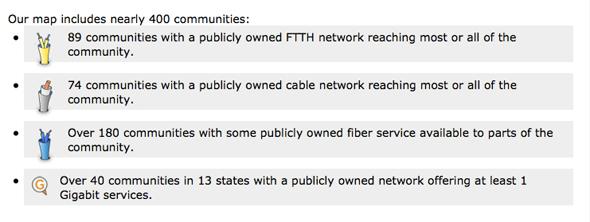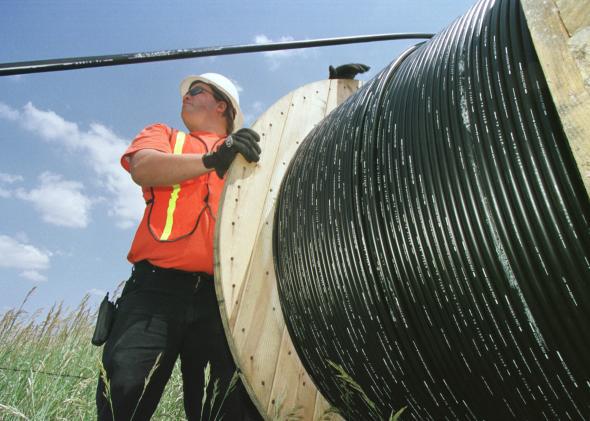The FCC’s new net neutrality rules, which are currently in their open comment period, are making it more noticeable than ever that most people have few options when it comes to Internet service providers. Other than the giants like Time Warner, Comcast, and Verizon, there isn’t a big marketplace of choices. So dissatisfied customers are looking for othre options like municipal or community-supported broadband. And if you do some research on the city you live in, you could discover that fiber for super-fast Internet has already been laid. But the big telecom companies won’t use it.
Google Fiber isn’t the only initiative to get fiber into U.S. cities, but even once it’s laid, the Comcasts of the world oppose what they say is unfair government competition, and pressure local governments to sign agreements saying that the municipality won’t become an Internet service providers itself or sell/lease access to the fiber to small companies.
Motherboard gives the example of Washington D.C., where, following a 1999 agreement with Comcast, an 100 Gbps fiber network was installed in 2006, but can only be used by nonprofits and the government. It isn’t available to private residents. Susan Crawford, a researcher at Harvard, wrote in a recent paper about D.C.’s fiber work that, “First, the city agreed not to lease or sell the fiber. Second, the contract required that the city not ‘engage in any activities or outcomes that would result in business competition between the District and Comcast or that may result in loss of business opportunity for Comcast.’”
MuniNetworks, which monitors local access to fiber across the U.S., says on its website, “Nineteen states have barriers in place that discourage or prevent local communities from deciding locally if such an investment [in fiber] is a wise decision.” Between telecom lobbying and non-compete agreements with local governments, big companies dominate to the point where nearly a third of Americans don’t have a choice about which ISP they use, and two-thirds have two or fewer choices.

Image from MuniNetworks.
Big corporations are hard to oppose in any industry, but usually Americans can use their buying power to make their opinions known and influence companies. But in this situation Internet service providers have created a situation where it’s difficult to find other options. Welp, time to go write to the FCC.
